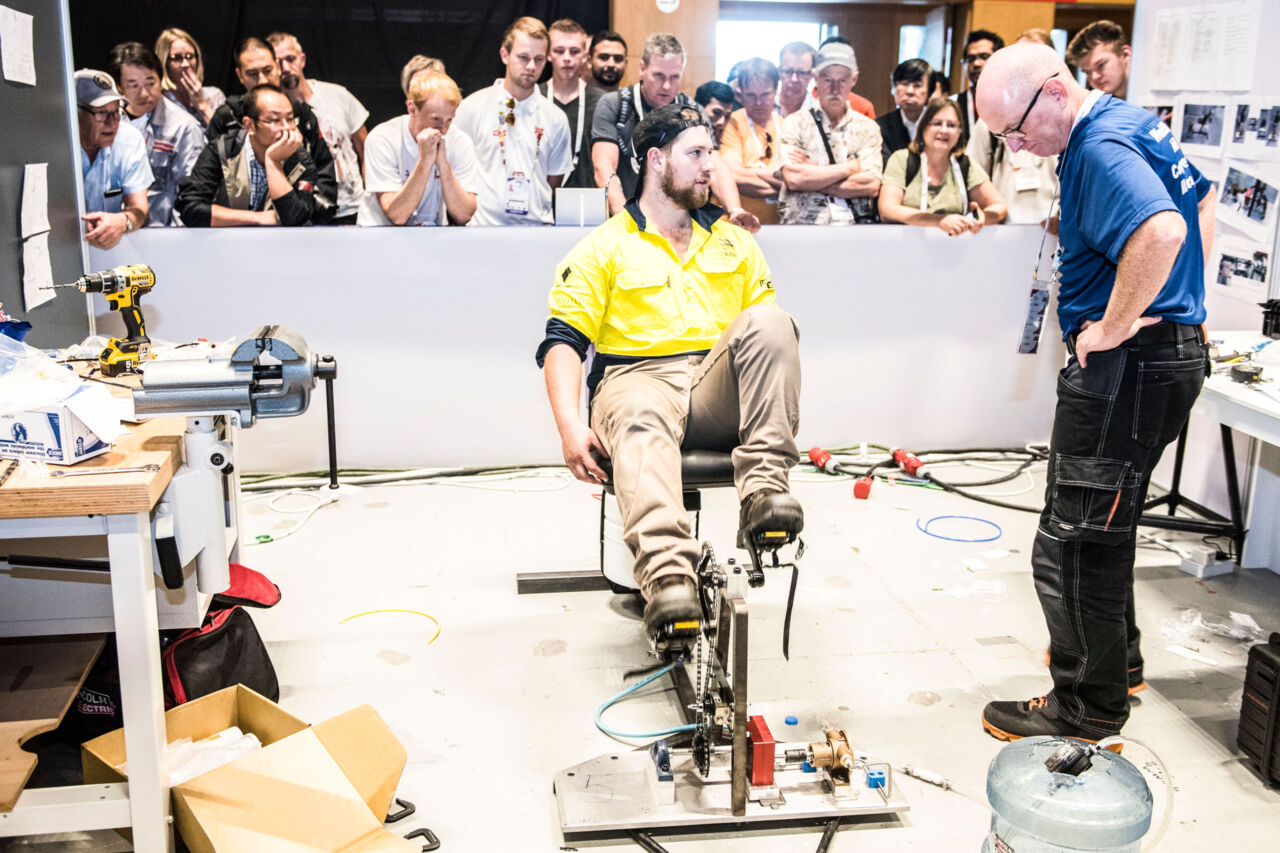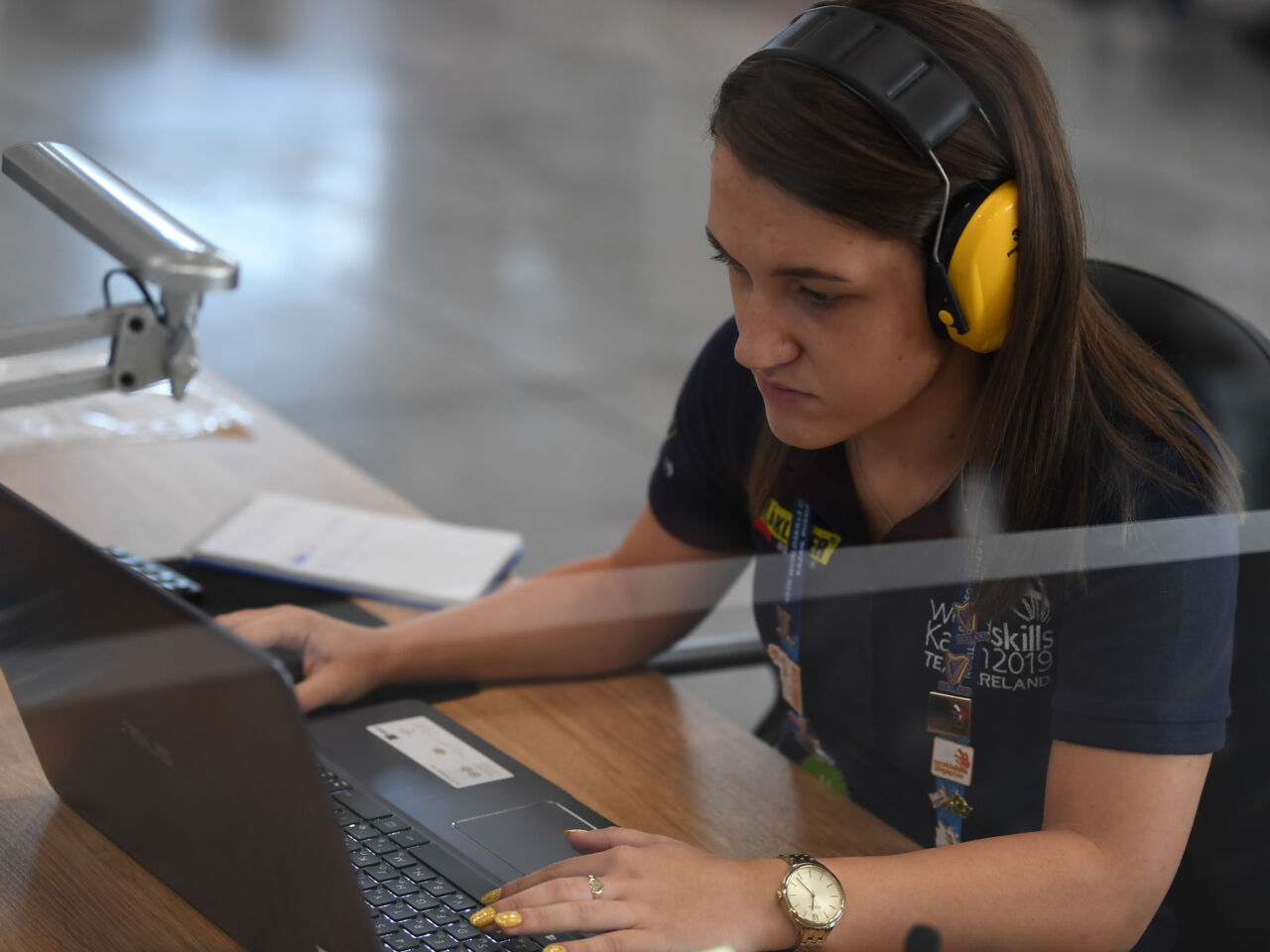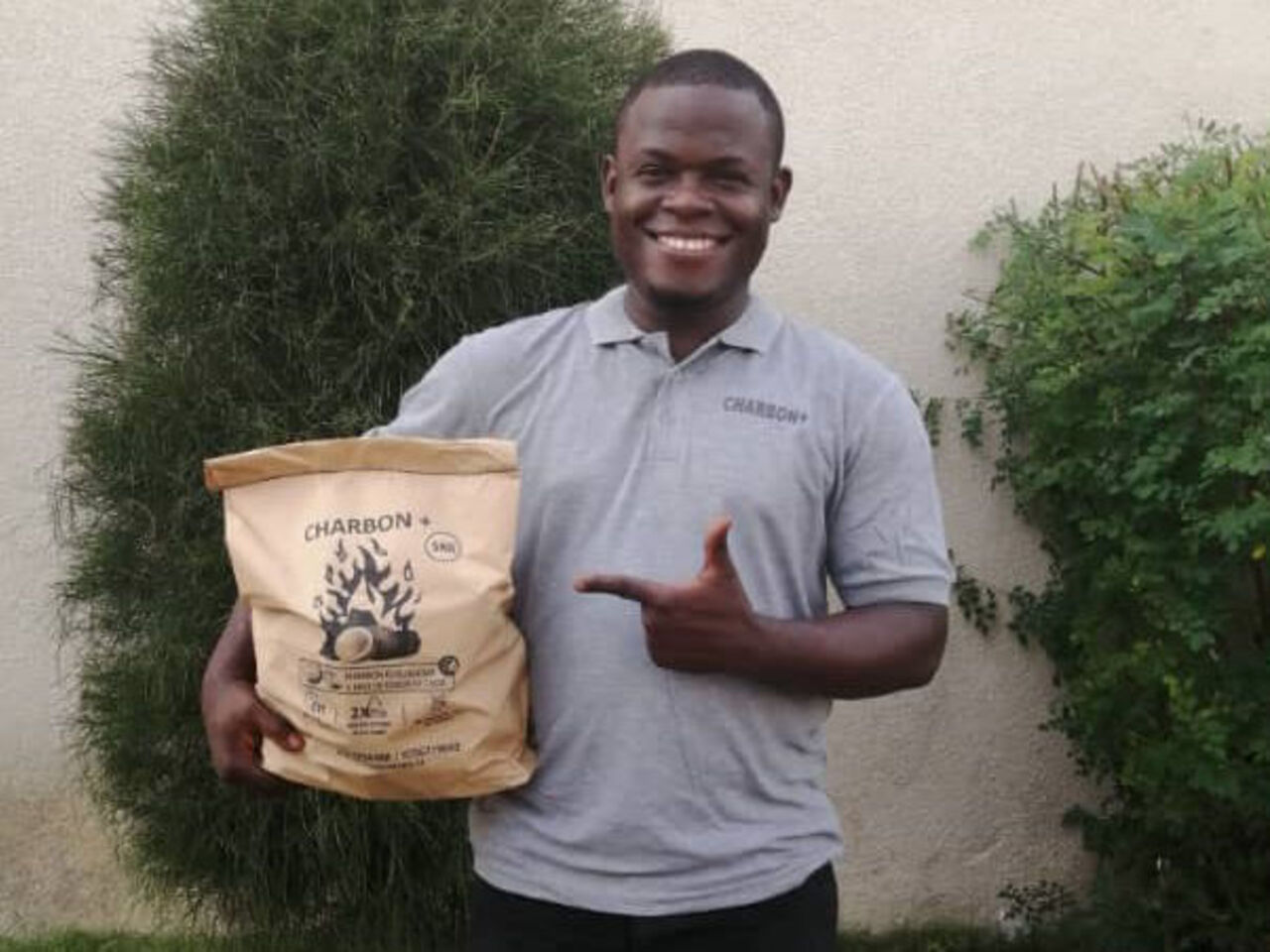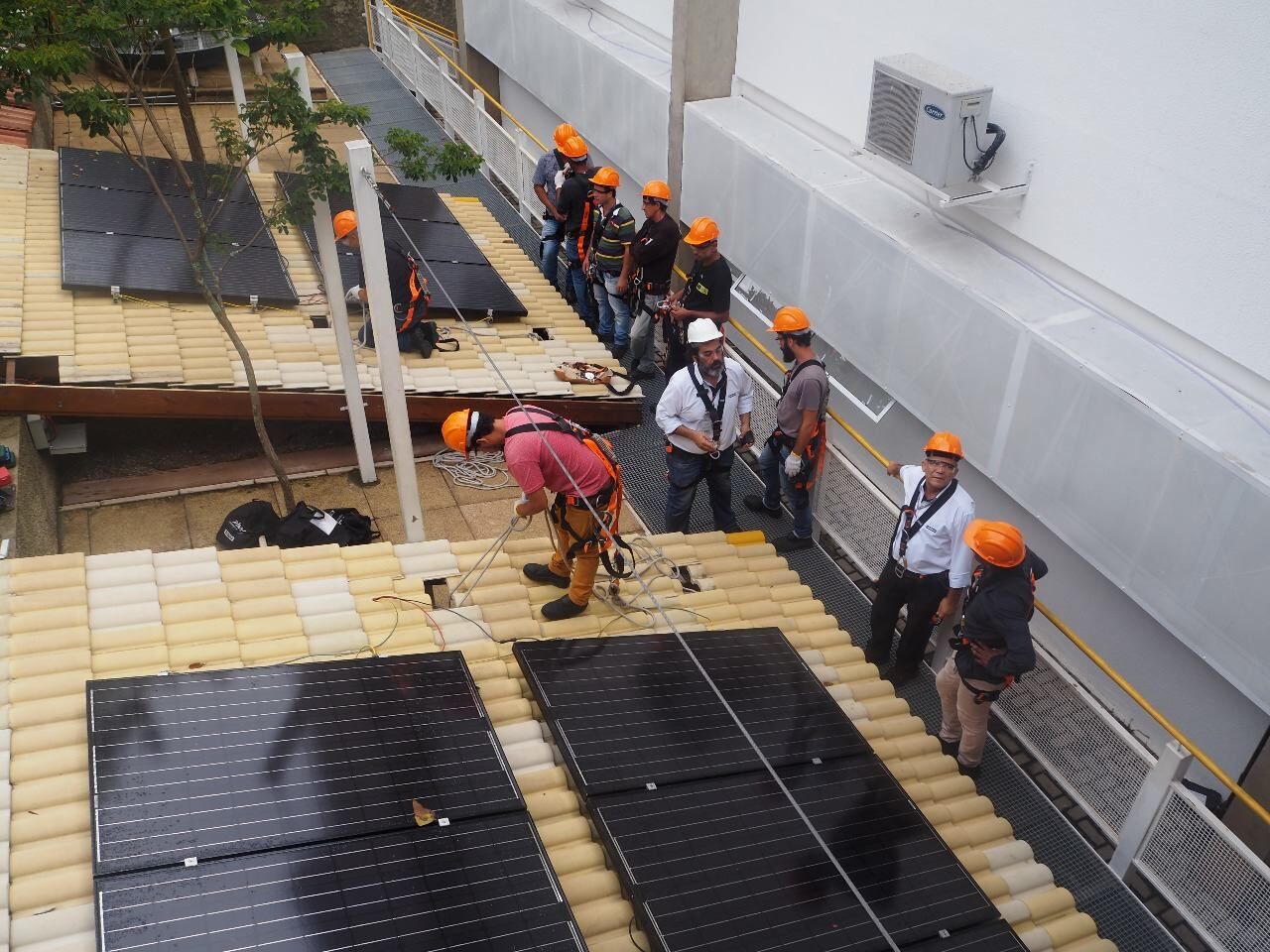28 April 2021
#SkillSustain: Pedal power to purify water
A bike that can pump and produce clean water will be on display at the WorldSkills Museum.

A pedal powered water purification system developed by students and faculty at Sheridan College, Canada, will be on display at the WorldSkills Museum under development in Shanghai, China. The system can produce drinking water for communities where access to clean water is a major challenge and which have unreliable or non-existent electricity supplies.
At approximately 80 r.p.m, the five-stage reverse osmosis pedal powered water purification produces six litres of clean water a minute.
The “water bike”, as it’s affectionately called, was the test project for the Industrial Mechanic Millwright skill competition at WorldSkills Abu Dhabi 2017. The task drew on all the skills associated with the Industrial Mechanic Millwright trade, including machining, welding, fabrication, precision alignment, layout, and precision hand work.
The WorldSkills Museum, situated on the banks of the Huangpu River in Shanghai, China, will celebrate and examine the value and role of skilled workers across time and cultures.
“One of the galleries will look at how skilled workers are trying to solve some of the most intractable environmental and social problems facing our world – and having access to clean drinking water is one of them. What’s more, many poor communities lack the resources to build expensive infrastructure,” says Hamida Ghafour, WorldSkills Museum Project Curator.
“What was striking about the water bike is that it’s cheap and practical. It can be placed near a lake or river, for example, and pump six litres of clean water every minute. It is a terrific example of skilled workers thinking about how they can build a better world.”
“We are also going to have adjacent to the water bike a hands-on interactive for visitors to see how it all works. Sitting on a stationary bike, they will pump the pedals and see water levels increase on a screen,” she said.
The final prototype of the water purification system was designed and built in Sheridan College’s workshops under the direction of Simon Heathcote, Lab Manager in the Faculty of Applied Science and Technology, and Craig Brazil, professor and coordinator of the IMM program.
“We were proud to have the opportunity to showcase a project from our own workshops on the world stage,” says Brazil, who also served as the Industrial Mechanic Millwright Skill Competition Manager for WorldSkills.
For the first time at this scale, apprentices, and post-secondary students from Sheridan’s Magna School for the Skilled Trades and student members from School of Mechanical and Electrical Engineering Technology joined efforts in a shared project.
“The inclusion of the water bike is a great example of how the collaboration between WorldSkills, our Members, partners, and supporters will deliver an exciting and inspiring experience for all visitors to the WorldSkills Museum,” says Mark Callaghan, WorldSkills Museum Project Director.
“It is through this collaboration that the Museum will highlight the importance of a skilled workforce, throughout history and into the future, as well as providing visitors with an understanding of how a more equitable world can be built with skills - just one of the many themes of the Museum.”
The bike is now being used for training water management technicians in Morocco.
WorldSkills donated the prototype to the United Nations Industrial Development Organization (UNIDO). The seven pedal-powered purification systems built at the end of the competition were also sent to UNIDO’s Learning and Knowledge Development Facility for an ongoing program addressing the scarce water resources in the North-African country.
Related stories
-

Earth Day 2023: “Every skill, Competitor and Member plays its own part in helping WorldSkills become a more sustainable event”
21 April 2023
-

#SkillsSustain: Upcycling jeans to save the oceans
29 April 2022
-

#SkillsSustain: Fighting deforestation one briquette at a time
27 April 2022
-

#SkillsSustain: “We must encourage the development of new renewable energy solutions”
22 April 2022